
ELIXIR OF LIFE IN NOTHINGNESS
Nayara Energy
A drop in the ocean may not mean anything, but
it turned into an elixir of life in the form of a small health centre for
hundreds of denizens in the villages in the otherwise prosperous Jamnagar
district in Gujarat’s Saurashtra region.
Earlier if you fell ill there was
no help available up to a radius of at least 35-40 km, but now it is right here
and people from as many as 14 to 15 villages come here. In terms of numbers, the
CHC set up in 2007 by Nayara Energy (previously Essar Oil), caters to more than
60,000 patients annually.
The CHC remains open for 24 hours, besides
providing outdoor patient department services daily from 9 am to 5 pm under a
qualified physician. It has a laboratory that is equipped to conduct tests for
malaria, diabetes and haemoglobin.
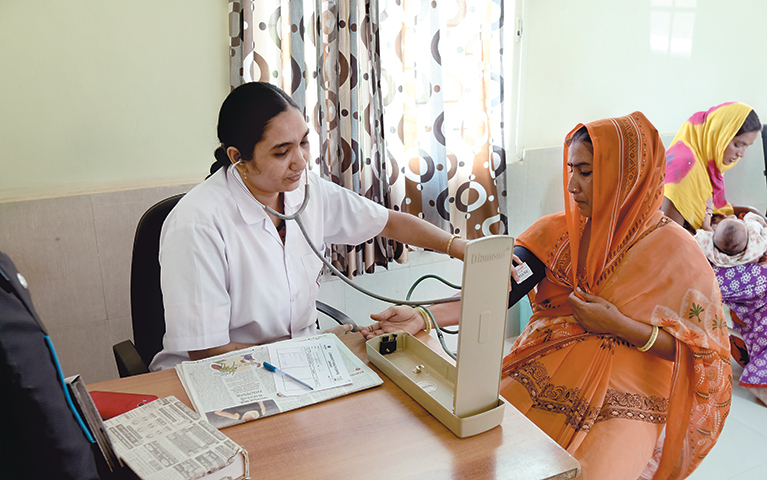
Blood pressure is being checked at the Health Centre
Besides these services, a diabetes check-up camp is organized
on the every second Wednesday of a month under the guidance
of a specialized doctor. Nayara Energy has set up a separate
Mother & Child Care Centre at the primary health centre in
Vadinar village, where a gynaecologist and a paediatrician are
available at least once in a week.
A fully-equipped Mobile Health Van criss-crosses 15 villages in
Jamnagar and Devbhoomi Dwarka districts every day. It carries
an MBBS doctor, a para-medical staff and an attendant in it.
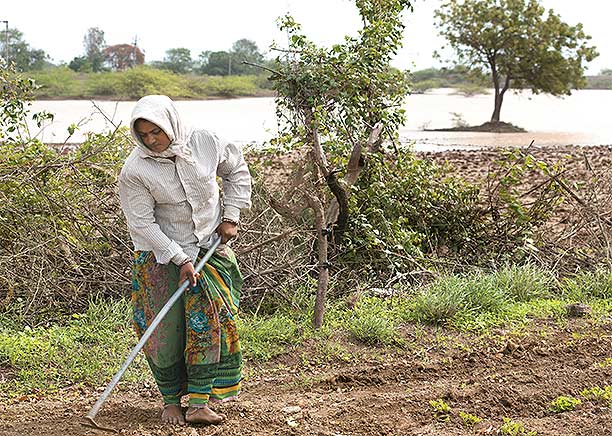
Well-being of women is priority
An estimated of more than 60,000 people are linked to basic
healthcare services every year and at least 5 lakh patients must
have been covered during the last 10 years. An emergency
ambulance service is also now available 24X7 in 5 villages.
This effort
is nothing less than Herculean in view of the overall
lack of government health infrastructure in the region, including
the severe paucity of basic and specialist doctors.
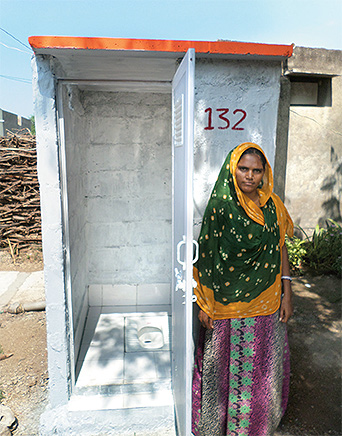
More than 2500 new toilets were constructed by Nyara Energy
The situation could be understood from the fact that against a requirement of 65 doctors, the relatively urban Jamnagar district has only 35, and in Devbhoomi Dwarka there are only five while the requirement is for 40 doctors. Forget the health infrastructure which may be lacking in several ways, but you can’t do much even otherwise without the availability of adequate number of doctors.
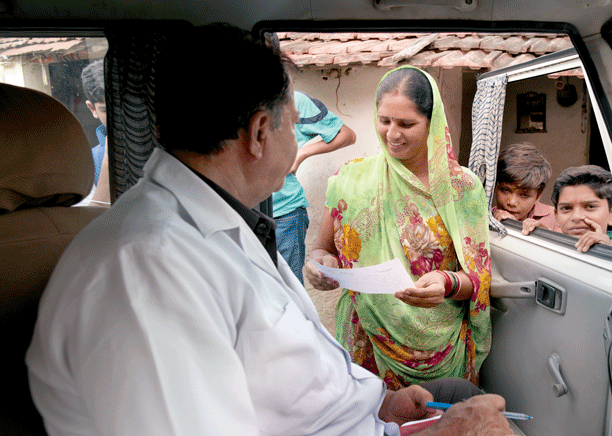
The doctor on a village visit
Then, there is high infant mortality rate and maternal mortality rate, and prevalence of malnutrition, anaemia, tuberculosis, diabetes, and blood pressure. High number of cases of tobacco consumption is also another challenge.Teams involved in Nayara Energy’s health and wellness project found that more than 5,000 families did not have access to toilets, coupled with a complete absence of solid waste management. In addition Nayara energy has also constructed close to 2,500 toilets in villages while a solid waste management programme was taken up in five villages, covering a population of more than 24,000.
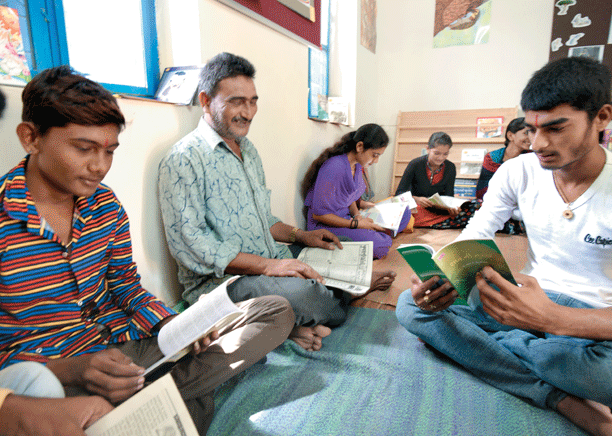
Literacy mission is a huge success and has made many empowered
Now I can sign in the bank, declares Jaitunben with triumph writ over her face. At 34, the mother of two sons and a daughter, is able to sign on bank documents. She can read her bank passbook. With her husband Ghanibhai, a fisherman, in Dubai, it is important for her to handle her bank affairs. “I came here to learn stitching so that I can earn extra. Here, I found that they also teach people like me to read and write and so I joined the classes,” she says about the operations at the women empowerment centre run by Nayara Energy in Vadinar village of Jamnagar district.
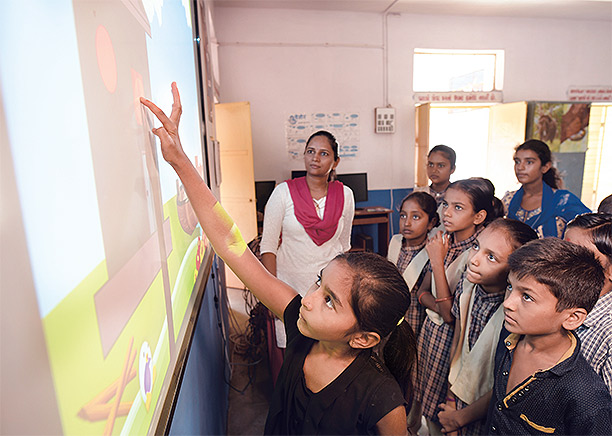
Devbhoomi Dwarka school children delighted to experience the virtual world
Thanks to the Gram Shikha Project of
Nayara energy with
Centre for Environment Education, Ahmedabad she was enrolled
for secondary education under the National Institute of Open
Schooling (NIOS). Khatija wrote 10th standard exams this year.
She has qualified in 4 papers.
Afsana Sota came here to learn stitching, but simultaneously
started studying under the NIOS. Her father, Usmanbhai, runs an
electric repairs shop. She had left studies in 2008 when she was
in class four but has cleared her tenth board exam.
Khatija and Afsana are not isolated examples. Nayara Energy
has enrolled 250 students under the NIOS in two years. It aims
to make 100% youth aged between 15 to 25 years in the 18
villages qualified their 10th standard by 2022.
As mentioned earlier, Jaitunben, Khatija and Afsana also learn stitching in the six-month training initiative, which is partnership with BAIF. They take 60 interns per batch and the latter learn to make bags, kurtas, lehngas and pillow covers, among other things.
Ask Valiben Bharatbhai, who joined in July. “I knew a little bit of sewing, but came here to learn more,” she says. Valiben can now make frocks and salwars. Her husband works as a labourer in a company and they need additional income. She hopes to earn a Rs 5,000 a month. So does Naznin, who is acquiring stitching skills after her mother learnt it at the centre.
Nayara Energy is committed to bring about real effective long term and sustainable changes in the lives of people not only in the villages that it operates but beyond that as well. We at the business understand and acknowledge that development is an all encompassing process and it is only when that the person till the last mile is benefitted that the efforts bear fruit. Meanwhile, the journey goes on.




